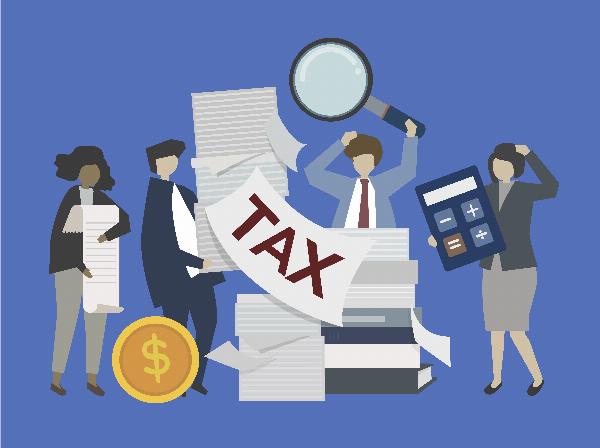 Link Insertions on Real Blogs – Quick Wins for Better Rankings!
Link Insertions on Real Blogs – Quick Wins for Better Rankings!
Is Raising Minimum Wages the Key to Tackling Income Inequality?
Written by Yash » Updated on: June 17th, 2025

The economic landscape of Jharkhand has witnessed tremendous transformation over the past few decades. From an agrarian-based economy, the state has evolved into a tourism, education, and manufacturing hub. However, amidst this growth and diversification, one critical question remains: Is the minimum wage enough to ensure economic survival for the people of Jharkhand in today's rapidly changing world?
This article delves into the intricacies of minimum wage regulations in Jharkhand, their effectiveness in safeguarding workers' welfare, and the broader implications for the economy. The discussion will also explore how shifts in economic conditions, inflation, and employment trends impact the adequacy of minimum wages and whether they genuinely support the livelihood of the state's workforce.
Understanding the Minimum Wage Framework in Jharkhand
Like other states in India, Jharkhand adheres to the provisions of the Minimum Wages Act of 1948. This law mandates that employers pay their workers a wage no lower than the minimum set by the state government. The minimum wage differs based on factors such as the worker's skill level (unskilled, semi-skilled, skilled, highly skilled) and the industry in which they are employed.
The state government regularly revises these wages, accounting for inflation and the cost of living. However, the debate remains whether these revisions are timely and adequate to match the real-world needs of the state's population.
Are Minimum Wages Enough for Economic Survival?
Despite revisions, the minimum salary in Jharkhand must often provide a sustainable livelihood, particularly considering the rising costs of essential goods and services. In recent years, inflation has steadily eroded the purchasing power of minimum wage earners, leaving many workers struggling to make ends meet. The gap between wage growth and inflation poses significant challenges for the working class, pushing many toward the edge of poverty.
Factors Influencing the Adequacy of Minimum Wages:
Inflation and Cost of Living: Inflation is one of the most significant factors that directly impact the adequacy of wages. As prices of food, housing, transportation, and healthcare rise, the real value of wages declines. Even with the state's periodic wage revisions, inflation often outpaces wage growth, leading to a mismatch between income and living expenses.
1. Urban vs. Rural Divide:
Jharkhand is unique in its geographical distribution, with a considerable portion of the population residing in rural areas. While urban workers may have access to slightly higher wages and better job opportunities, rural workers often need more wages and employment options. The minimum wage in Jharkhand varies between urban and rural areas, but for many rural workers, more is needed for a decent standard of living.
2. Housing and Rent:
In cities like Shimla, Solan, and Dharamshala, where the demand for housing is high due to tourism and educational institutions, rent has skyrocketed. Minimum wage earners, particularly those in urban areas, spend much of their income on rent alone, leaving little for other necessities such as food, healthcare, and education.
3. Healthcare Costs:
Access to affordable healthcare is a growing concern in Jharkhand. With an increasing number of private healthcare facilities, workers earning minimum wages often find medical expenses unaffordable. Even routine check-ups or treatments can put a substantial strain on their finances.
4. Transportation:
In hilly regions, transportation costs are higher due to the challenging terrain and longer travel distances. Minimum wage earners often rely on public transport, but the rising costs of fuel and transport services have made commuting an expensive affair.
The Impact of Minimum Wages on the Local Economy
The relationship between minimum wages and the economy is complex. On one hand, higher minimum wages can stimulate economic growth by increasing the purchasing power of workers, leading to greater demand for goods and services. On the other hand, businesses, particularly small and medium enterprises (SMEs), often argue that raising the minimum wage puts pressure on their operating costs, forcing them to cut jobs or pass on the costs to consumers through higher prices.
Key Economic Impacts:
1. Increased Consumer Spending:
When workers earn more, they tend to spend more on goods and services, which can boost the local economy. This increased spending supports businesses, which in turn may create more jobs.
2. Pressure on Small Businesses:
SMEs in Jharkhand often operate on tight margins. An increase in the minimum salary in Jharkhand could lead these businesses to reduce their workforce or shift towards automation to manage costs. This can have a ripple effect on employment rates, particularly in rural areas where SMEs are a significant source of jobs.
3. Inflationary Pressures:
A rise in minimum wages may lead to inflation if businesses pass on the increased labor costs to consumers. This can create a vicious cycle where inflation erodes the benefits of wage increases, leaving workers no better off.
Minimum Wage Revisions and Their Effectiveness
While the state government has made efforts to revise the minimum wage regularly, more than the current mechanism may add to the rapidly changing economic environment. The wage revisions often lag behind inflation, and in some cases, the increments are too small to make a tangible difference in workers' lives.
Furthermore, the lack of enforcement of minimum wage laws in certain sectors means that many workers, particularly in informal industries like agriculture and domestic work, still need to receive the wages they are legally entitled to. This exacerbates the economic hardships these workers face and widens the gap between the rich and the poor in the state.
Policy Recommendations for Ensuring Livable Wages
To ensure that the minimum salary in Jharkhand is adequate to meet the basic needs of workers, several policy measures can be considered:
1. Indexing Wages to Inflation:
One of the most effective ways to ensure minimum wages keep pace with the cost of living is to index them to inflation. This would automatically adjust wages based on changes in the price level, ensuring that workers are included in times of rising prices.
2. Targeted Wage Support for Vulnerable Sectors:
Certain sectors, such as agriculture, tourism, and domestic work, are more vulnerable to wage exploitation. The government should implement targeted wage support measures for workers in these industries, ensuring they receive fair compensation.
3. Strengthening Enforcement Mechanisms:
Even the best wage policies are only effective if properly enforced. The state government must strengthen its enforcement mechanisms to ensure employers comply with minimum wage regulations. This includes conducting regular inspections and penalizing businesses that fail to pay their workers fairly.
4. Expanding Social Safety Nets:
In addition to wage reforms, expanding social safety nets such as healthcare, housing, and education subsidies can help reduce the financial burden on minimum wage earners. By providing these essential services at a lower cost, the government can improve workers' overall standard of living.
Conclusion: The Path Forward for Jharkhand
While the minimum wage in Jharkhand has provided some measure of protection for workers, more must be done to ensure that it is enough for economic survival in today's rapidly changing world. Rising inflation, unequal wage distribution, and limited employment opportunities mean many workers still need help to make ends meet.
To create a more equitable and prosperous future for all, the state must take proactive steps to improve the adequacy of minimum wages and strengthen its social safety nets. By doing so, Jharkhand can ensure its workforce survives and thrives in the evolving economic landscape.
Note: IndiBlogHub features both user-submitted and editorial content. We do not verify third-party contributions. Read our Disclaimer and Privacy Policyfor details.
Copyright © 2019-2025 IndiBlogHub.com. All rights reserved. Hosted on DigitalOcean for fast, reliable performance.
















